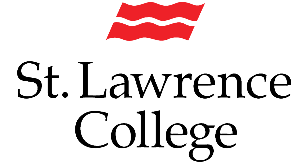
Revising continuing education programming with dedicated market analysis

The Situation
The torrid pace of change in Canada’s labour market has put growing pressure on employers, educators, and professionals to keep up with constantly shifting skills gaps. Nowhere is this pressure felt more strongly than in the field of Information and Communications Technology (ICT), and particularly in urban centres like Toronto, where companies struggle to find talented professionals with training in the most up-to-date skills. As many small-to-medium-sized enterprises (SMEs) do not have the resources to provide constant skills upgrading internally, they look to Canada’s postsecondary institutions to help close these skills gaps with training that can keep up with a fast-changing reality.
It was with an eye to addressing this challenge that Seneca College’s Faculty of Continuing Education reached out to Academica Group to learn more about which skills are most valuable to both employers and professionals who are looking to fill crucial skills gaps.
The Solution
With the support of the Ontario Government, Seneca and Academica set out to examine the demand for ICT sector skills in Ontario’s York Region, with the ultimate aim of helping unemployed and underemployed workers find jobs and fill ICT skills gaps in the area. The Solution Working in close partnership with Seneca, Academica ran interviews with executives in the ICT and related sectors in York Region, as well as online surveys to gauge the diverse perceptions of those who have a stake in ICT-related college programming, such as un- and underemployed workers in the York Region who might benefit from skills upgrading, or employers looking to close a skills gap. Seneca and Academica then combined this research with cutting edge labour market data.
The research provided Seneca with crucial knowledge on where skills gaps currently exist, employers’ perceptions of how well current employees and applicants are meeting those shortages, and prospective students’ perceptions of academic programs looking to train people in these in-demand skills. In the end, Seneca gathered valuable information that has directly impacted the pricing, delivery method, and curriculum of its programming.
The Result
As a result of this research, Seneca has significantly enhanced its ability to react to changing skills demand. Thus it is incredibly well positioned to offer the most relevant training to provide students the skills that are valued by employers, which marks a win-win-win for all involved.



